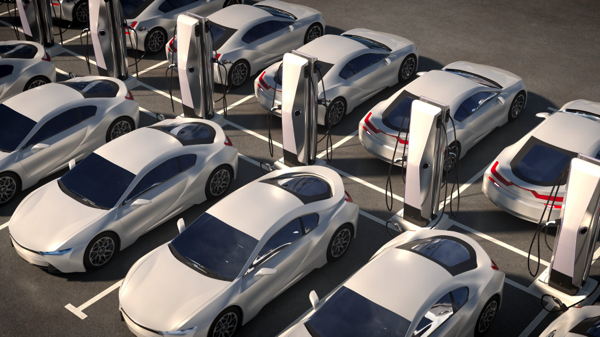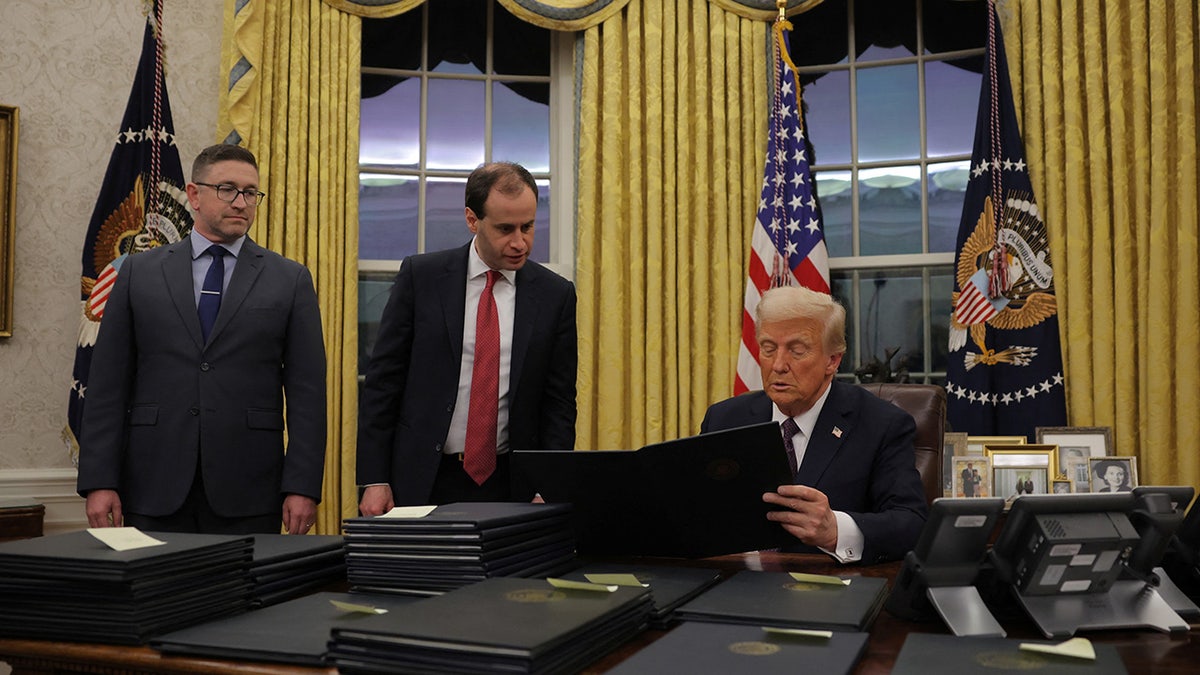Resistance To EV Mandates Intensifies: Car Dealers Push Back

Table of Contents
Financial Burden of EV Adoption for Dealerships
The financial implications of transitioning to an EV-centric sales model are substantial and are a major driver of resistance to EV mandates. Dealerships are facing significant upfront costs and ongoing challenges that threaten their profitability.
High Initial Investment Costs
Dealerships must invest heavily in new infrastructure to support EVs. This represents a considerable financial burden for many businesses, particularly smaller dealerships. The costs are substantial and include:
- High cost of charging equipment: Installing Level 2 and DC fast chargers requires significant capital expenditure, depending on the number of chargers and their power capacity.
- Need for specialized EV mechanic training programs: EVs require specialized tools, knowledge, and training for maintenance and repairs, demanding significant investment in employee education. Existing mechanics need retraining, and new specialized technicians must be hired.
- Renovation costs for existing facilities: Dealerships may need to renovate their service bays to accommodate the specific requirements of EV maintenance, such as high-voltage safety protocols. This can involve extensive electrical work and specialized equipment.
Inventory Management Challenges
Managing EV inventory presents unique challenges. Unlike gasoline-powered vehicles, EVs often experience slower sales cycles due to higher prices and consumer hesitancy. Furthermore, rapid technological advancements lead to concerns about obsolescence:
- Difficulties in forecasting EV demand: Accurately predicting future EV sales is difficult, making inventory management a complex and risky undertaking.
- Higher storage costs for EVs requiring specialized charging: Storing EVs requires access to charging infrastructure, increasing operational costs.
- Risk of stranded assets with rapid technological change: Rapid advancements in battery technology and EV features can quickly render older models less desirable, leaving dealerships with unsold inventory.
Reduced Profit Margins on EVs
Current profit margins on electric vehicles are often lower than those on gasoline-powered vehicles. This is due to several factors, placing significant financial pressure on dealerships:
- Lower service revenue potential for EVs: EVs have fewer moving parts than internal combustion engine (ICE) vehicles, potentially reducing the frequency and cost of servicing, leading to lower service revenue for dealerships.
- Increased competition in the EV market: The EV market is becoming increasingly competitive, potentially impacting the pricing power and profit margins of dealerships.
- Potential impact on overall dealership profitability: The combined impact of increased investment costs, inventory challenges, and reduced profit margins could significantly affect the overall profitability of dealerships.
Concerns Regarding Consumer Demand and Infrastructure Readiness
Beyond the financial burdens faced by dealerships, concerns about consumer demand and the readiness of supporting infrastructure are significant factors fueling resistance to EV mandates.
Range Anxiety and Charging Infrastructure Gaps
Range anxiety—the fear of running out of battery power before reaching a charging station—remains a significant barrier to EV adoption. This is exacerbated by the lack of widespread, reliable charging infrastructure:
- Insufficient public charging stations in many areas: Many areas lack the density of public charging stations required to support widespread EV adoption, particularly in rural areas.
- Concerns about charging times and reliability: Charging times can be lengthy, and the reliability of charging stations can be inconsistent, increasing consumer apprehension.
- Uneven distribution of charging infrastructure across different regions: The availability of charging stations is unevenly distributed, creating "charging deserts" in some areas.
Consumer Education and Awareness
A lack of consumer awareness about the benefits of EVs and the availability of government incentives hinders wider adoption. Educating consumers is crucial to overcome this hurdle:
- Need for effective consumer education campaigns: Targeted campaigns are necessary to educate consumers about the benefits, costs, and practicalities of owning an EV.
- Improving transparency about government incentives and rebates: Making information about available incentives and rebates readily accessible to consumers is essential.
- Addressing consumer misconceptions about EVs: Addressing common misconceptions about EVs, such as charging time and range limitations, is crucial for fostering broader acceptance.
Grid Capacity Limitations
The increased demand for electricity from EVs could strain existing power grids, raising concerns about energy security and stability:
- Need for grid upgrades to support widespread EV adoption: Significant investments in grid infrastructure are needed to handle the increased electricity demand from EVs.
- Integration of renewable energy sources into the grid: Expanding the use of renewable energy sources is critical to support the increased electricity demand without compromising environmental goals.
- Potential impact on electricity prices: The increased demand for electricity could potentially lead to higher electricity prices.
Dealership Advocacy and Policy Recommendations
Car dealerships are actively advocating for policies that address the challenges they face in adapting to EV mandates.
Lobbying Efforts and Industry Associations
Dealerships are engaging in lobbying efforts to influence government policy related to EV mandates:
- Increased engagement with policymakers at local and national levels: Dealerships are actively engaging with policymakers to present their concerns and propose solutions.
- Collaboration with industry associations to present a unified front: Industry associations are playing a crucial role in coordinating lobbying efforts and presenting a unified voice to policymakers.
- Advocacy for financial support and incentives for dealerships: Dealerships are advocating for government support to help them offset the costs of transitioning to EVs.
Phased Implementation of EV Mandates
Dealerships are pushing for a more gradual transition to EVs to allow for a more manageable adaptation process:
- Gradual increase in EV sales targets: A phased approach allows dealerships to adapt to the changing market conditions more effectively.
- Extension of timelines for compliance: Extending deadlines provides dealerships with more time to invest in infrastructure and training.
- Flexibility in meeting mandated EV sales quotas: Flexibility allows dealerships to adjust their sales strategies to match evolving market demand.
Investment in Training and Infrastructure Support
Dealerships are seeking government support for training programs and infrastructure development:
- Funding for EV technician training programs: Government funding for training programs is crucial to ensure dealerships have the skilled workforce needed to service EVs.
- Grants and subsidies for charging infrastructure installation: Grants and subsidies can help dealerships offset the high costs of installing charging stations.
- Tax incentives to encourage EV adoption by dealerships: Tax incentives can make the transition to EVs more financially viable for dealerships.
Conclusion
The resistance to EV mandates among car dealers highlights the significant challenges associated with a rapid transition to electric vehicles. Financial burdens, consumer concerns, and infrastructure limitations pose substantial obstacles. Addressing these issues requires a collaborative approach involving government, manufacturers, and dealerships. A phased implementation of EV mandates, coupled with adequate financial support and training programs, is crucial to ensure a successful and equitable transition. Continuing to ignore the concerns surrounding EV mandates and the struggles of car dealerships will only prolong the inevitable shift to electric mobility, potentially hindering the broader goals of sustainable transportation. Open dialogue and proactive policy adjustments are essential to navigate the complexities of this electric vehicle transition and mitigate the potential negative impacts on the automotive industry and consumers. Further discussion regarding the implications of EV mandates is vital for all stakeholders involved. Let's work together to find solutions that support both the environment and the economic viability of the automotive industry.

Featured Posts
-
 Dwyane Wades Take On Jimmy Butler Leaving The Miami Heat
May 15, 2025
Dwyane Wades Take On Jimmy Butler Leaving The Miami Heat
May 15, 2025 -
 A Deep Dive Into Presidential Pardons The Trump Administrations Legacy
May 15, 2025
A Deep Dive Into Presidential Pardons The Trump Administrations Legacy
May 15, 2025 -
 Rays Sweep Padres Complete Domination In Series
May 15, 2025
Rays Sweep Padres Complete Domination In Series
May 15, 2025 -
 Jimmy Butler Picks Rockets Vs Warriors Game 6 Predictions And Best Bets
May 15, 2025
Jimmy Butler Picks Rockets Vs Warriors Game 6 Predictions And Best Bets
May 15, 2025 -
 Chinas Automotive Landscape A Case Study Of Bmw And Porsches Challenges
May 15, 2025
Chinas Automotive Landscape A Case Study Of Bmw And Porsches Challenges
May 15, 2025
Latest Posts
-
 Berlin Bvg Im Ausstand Aktuelle Informationen Und Fahrplanausfaelle
May 15, 2025
Berlin Bvg Im Ausstand Aktuelle Informationen Und Fahrplanausfaelle
May 15, 2025 -
 The Role Of Jeremy Arndt In Bvg Talks A Comprehensive Overview
May 15, 2025
The Role Of Jeremy Arndt In Bvg Talks A Comprehensive Overview
May 15, 2025 -
 Tarifkonflikt Bvg Beigelegt Schlichtung Verhindert Streik Zu Ostern
May 15, 2025
Tarifkonflikt Bvg Beigelegt Schlichtung Verhindert Streik Zu Ostern
May 15, 2025 -
 Analyzing The Negotiator Jeremy Arndts Impact On Bvg Discussions
May 15, 2025
Analyzing The Negotiator Jeremy Arndts Impact On Bvg Discussions
May 15, 2025 -
 Understanding Jeremy Arndts Negotiation Role In Bvg Talks
May 15, 2025
Understanding Jeremy Arndts Negotiation Role In Bvg Talks
May 15, 2025
